The popularity of modular buildings are now firmly in evidence for many sectors in the UK, says The Modular and Portable Building Association (MPBA)
Temporary or permanent modular buildings are proving to be the choice for many types of sector requirements where end users are looking to quickly overcome problems relating to increased demand in their business or organisation
They are rapidly becoming a popular solution for the health and education sectors seeking to overcome the high demands being placed on them, alongside that the requirements for hotels, offices and now the newest buzz word being residential.
Temporary or modular buildings are now firmly in evidence in many applications throughout the UK, and their popularity shows no signs of diminishing as increasing numbers of companies and end users discover their benefits for themselves.
Given the critical nature of requirements for buildings which are both modern, functional, efficient, smart and have a guaranteed speed of delivery and meet costs to suit budgets; modular buildings tick all the boxes.
Because these structures are manufactured offsite to the highest specifications, they can also be installed without causing disruption to daily routines on customer’s locations.
What’s more, modular buildings can be created to fit into small spaces with unusual shapes.
The Modular and Portable Building Association’s (MPBA) Chief Executive Jackie Maginnis said that customers greatly appreciate the possibility of sourcing these cutting-edge facilities both quickly and cost-effectively.
She explained: “Modular buildings can be manufactured with ultra quick lead times and supplied as an extension or an “add-on” to meet peaks in demand.
“Other major benefits of modular buildings include energy compliance, meeting the latest regulations and the ability to create buildings that are designed to meet the precise specifications of client’s requirements.”
The benefits of fully functional buildings:
• Modular units are planned and designed to suit specific user requirements;
• Buildings are also created offsite in a factory, which enables buildings to be delivered ready to use;
• A misconception – in some quarters – is that once a modular building has been installed, it can’t subsequently be moved and used elsewhere.
She continued: “The beauty of temporary buildings is that they can be removed and reused elsewhere – as the need arises.
“Modular buildings are constructed to be fully compliant with all building regulations and encompass “Part L” energy efficiency – which means modular buildings also have lower carbon emissions.
“Members of the MPBA produce the required Energy Performance Certificates so that a customer can be certain of the energy rating for a building.”
The highest possible construction standards – but faster
It’s the “flexibility” of a modular approach that gives one of the greatest benefits, and this is particularly relevant when it comes to urgent and difficult projects.
The length of time it takes to install new modular buildings will vary according to requirements and the ease of access to the site, among many more considerations, but it will always be quicker than “conventional” construction projects. The benefits of a quick installation combined with minimal onsite disruption are not to be overlooked.
They are also major reasons for the increasing popularity of modular buildings within all sectors, but those thinking of going down the modular route should talk to industry directly.
MPBA is addressing the skill shortage in the industry
Working with CITB under the identity of Modular Skills UK, the MPBA is very proud to launch its NVQ scheme to the industry. This scheme is to encourage members and non-members of the Association alike to progress the skills of its workforce with qualifications against the Level 2 NVQ Diploma in Innovative and Modern Methods of Construction for Modular and Portable Buildings (QUB806), a qualification developed within the MPBA.
An NVQ is recognition of competence and encourages the development of employees; increasing productivity, performance and competitiveness. It is also an important requirement in the recent development of the Construction Skills Card Scheme (CSCS) where all staff working on site now requires a specific card.
This action further proves the professionalism of the industry sector.
More information about MPBA members and their products can be obtained from the MPBA website www.mpba.biz
. . . . . . . . . . . . . . . . . . . . . . . . . . . . . . . . . . . . . . . . . . . . . . .
The Modular & Portable Building Association Limited (MPBA)
Tel: 0870 241 7687
Twitter @MPBAUK



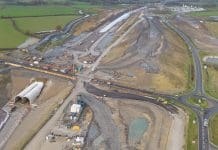


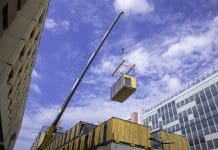
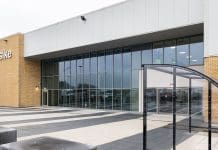

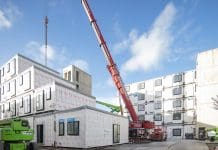




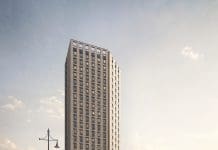
Modular buildings are one of the best and most innovative advancements in the history of modern building construction. This is an excellent article providing very important and undeniable benefits of modular buildings. If you are looking for more information about temporary modular buildings, or permanent modular construction; a useful resource is http://www.vanguardmodular.com.